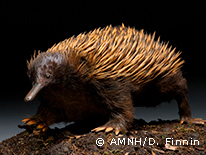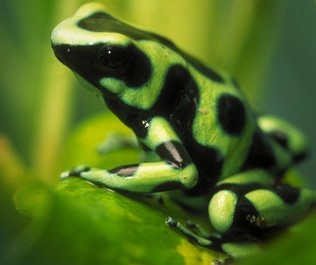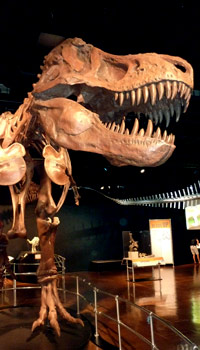Summer is a time to relax and enjoy yourself. But why not spend your lazy summer days learning something new? Three museums throughout California are hosting new exhibits that will entertain and educate you throughout the summer. So, take the afternoon off work, grab the kids and hit up these local hot spots:
Explore the world of extinct and living mammals. Now through September 12, 2010, the California Academy of Sciences in San Francisco is hosting an exhibit titled “Extreme Mammals: The Biggest, The Smallest and The Most Amazing Mammals of All Time.” The museum features extraordinary fossils, reconstructions and live animals that let guests examine the ancestry and evolution of several different species. With the use of computers and hands on activities, Extreme Mammals allows visitors to learn about this diverse collection of animals and their place in the family tree.
world of extinct and living mammals. Now through September 12, 2010, the California Academy of Sciences in San Francisco is hosting an exhibit titled “Extreme Mammals: The Biggest, The Smallest and The Most Amazing Mammals of All Time.” The museum features extraordinary fossils, reconstructions and live animals that let guests examine the ancestry and evolution of several different species. With the use of computers and hands on activities, Extreme Mammals allows visitors to learn about this diverse collection of animals and their place in the family tree.
Frogs are among the most visually and vocally pleasing life forms on the globe. The Anaheim Muzeo‘s fun new exhibit, Frogs: A Chorus of Colors, offers visitors a colorful assortment of over 100 live frogs from all over the world, with 15 different frog habitats. Visitors learn about a frog’s habitat, evolution, importance in our ecosystems and how they are in danger in the changing environment.
pleasing life forms on the globe. The Anaheim Muzeo‘s fun new exhibit, Frogs: A Chorus of Colors, offers visitors a colorful assortment of over 100 live frogs from all over the world, with 15 different frog habitats. Visitors learn about a frog’s habitat, evolution, importance in our ecosystems and how they are in danger in the changing environment.
 Learn how scientists are solving one of the trickiest puzzles of all time. Now through September 5th, 2010, the San Diego Natural History Museum is showing “Dinosaurs: Ancient Fossils, New Discoveries.” This new exhibit takes visitors on a journey through modern paleontology, demonstrating how technology has allowed scientists to understand fossils in new ways. Explore how dinosaurs lived, behaved and the theories as to why they became extinct. The museum boasts accurate life-size models of more than 35 different species of dinosaurs, reptiles, early birds, and more, including several species that have never before been reconstructed. Also, don’t forget to check out the new 3-D film “Dinosaurs Alive!” that explores the lives and world of dinosaurs in the Triassic, Jurassic and Cretaceous periods.
Learn how scientists are solving one of the trickiest puzzles of all time. Now through September 5th, 2010, the San Diego Natural History Museum is showing “Dinosaurs: Ancient Fossils, New Discoveries.” This new exhibit takes visitors on a journey through modern paleontology, demonstrating how technology has allowed scientists to understand fossils in new ways. Explore how dinosaurs lived, behaved and the theories as to why they became extinct. The museum boasts accurate life-size models of more than 35 different species of dinosaurs, reptiles, early birds, and more, including several species that have never before been reconstructed. Also, don’t forget to check out the new 3-D film “Dinosaurs Alive!” that explores the lives and world of dinosaurs in the Triassic, Jurassic and Cretaceous periods.
